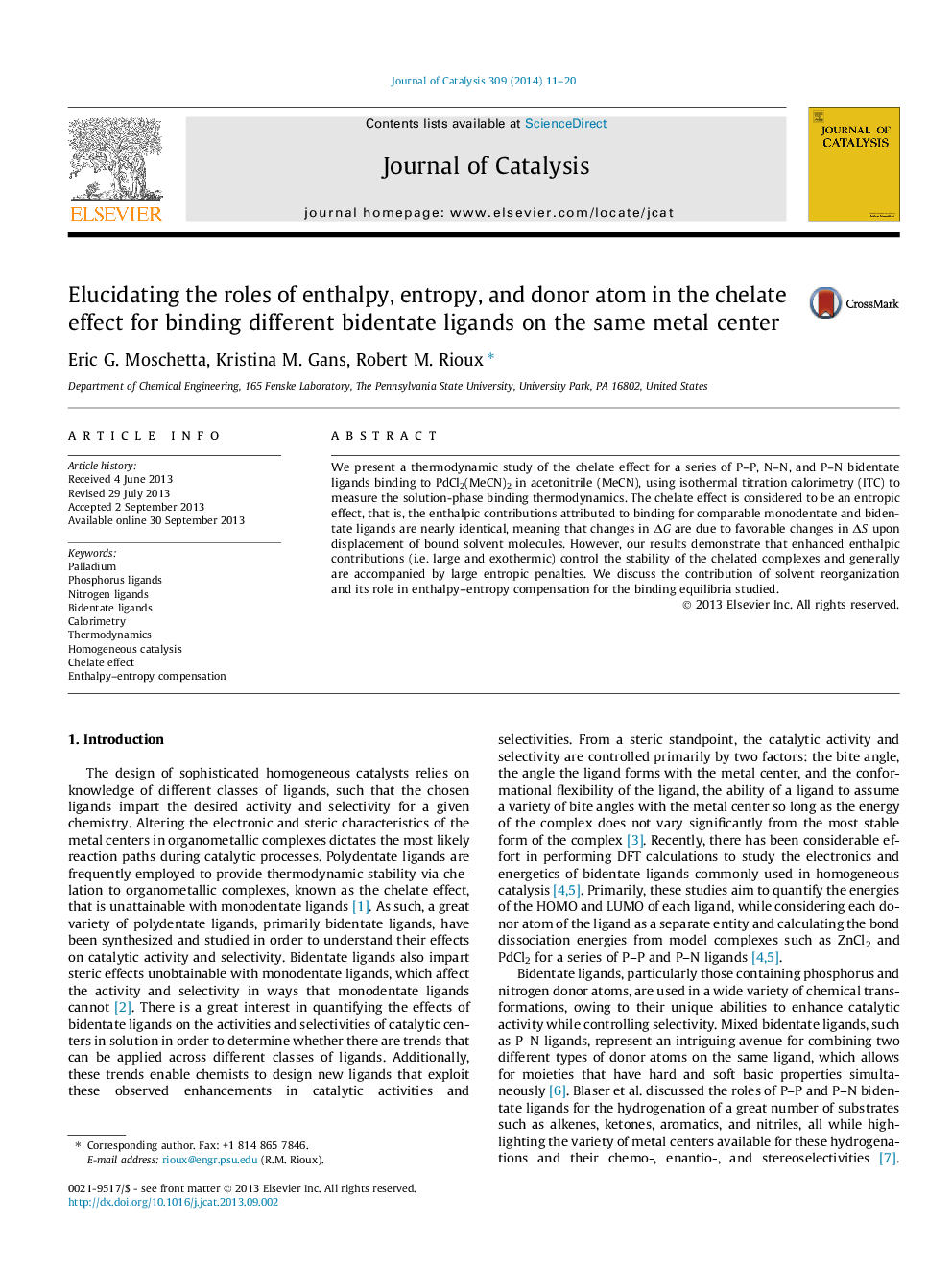| Article ID | Journal | Published Year | Pages | File Type |
|---|---|---|---|---|
| 61091 | Journal of Catalysis | 2014 | 10 Pages |
•We use calorimetry to study bidentate ligand binding to a solvated Pd(II) salt.•Favorable enthalpic contributions dictate the stability of the chelated complexes.•Ligands with P donor atoms contribute more favorably to enthalpy than N atoms.•Solvent reorganization contributes to the observed enthalpy of binding.
We present a thermodynamic study of the chelate effect for a series of P–P, N–N, and P–N bidentate ligands binding to PdCl2(MeCN)2 in acetonitrile (MeCN), using isothermal titration calorimetry (ITC) to measure the solution-phase binding thermodynamics. The chelate effect is considered to be an entropic effect, that is, the enthalpic contributions attributed to binding for comparable monodentate and bidentate ligands are nearly identical, meaning that changes in ΔG are due to favorable changes in ΔS upon displacement of bound solvent molecules. However, our results demonstrate that enhanced enthalpic contributions (i.e. large and exothermic) control the stability of the chelated complexes and generally are accompanied by large entropic penalties. We discuss the contribution of solvent reorganization and its role in enthalpy–entropy compensation for the binding equilibria studied.
Graphical abstractFigure optionsDownload full-size imageDownload high-quality image (63 K)Download as PowerPoint slide
